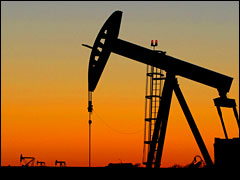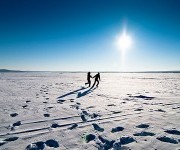You already know not to eat the yellow snow, but if you like to go skiing or snowboarding on slopes that provide perfect powder, you might want to just avoid eating all snow entirely. Because in the future, all the ski slopes will be doing what Arizona Snowbowl is doing this season: making snow out of sewage effluent.
In February, a federal appeals court ruled in favor of the ski resort’s upgrade plans, ending a legal saga fought by a coalition of environmental groups and 13 American Indian tribes, which consider the mountain sacred and view the wastewater snow as a desecration.
This coming ski season, the resort, Arizona Snowbowl, will become the first ski resort in the world to use 100 percent sewage effluent to make artificial snow.
This is one of those issues where there are two ways to see it. Either a) this is an environmental disaster in the making or b) this is an environmentally sensitive compromise that limits waste.
If you are on Side A, you worry, like Taylor McKinnon of the Center for Biological Diversity, “about the impact on the delicate alpine tundra and to human health should skiers fall into the treated sewer-water snow and ingest it.”
If you are on Side B, you argue, like Corbin Newman, a forester with the U.S. Forest Service, that “snow-making has become necessary because of climate change.”
Maybe just don’t eat the snow. Or fall in it. Ever. Easy, right?



